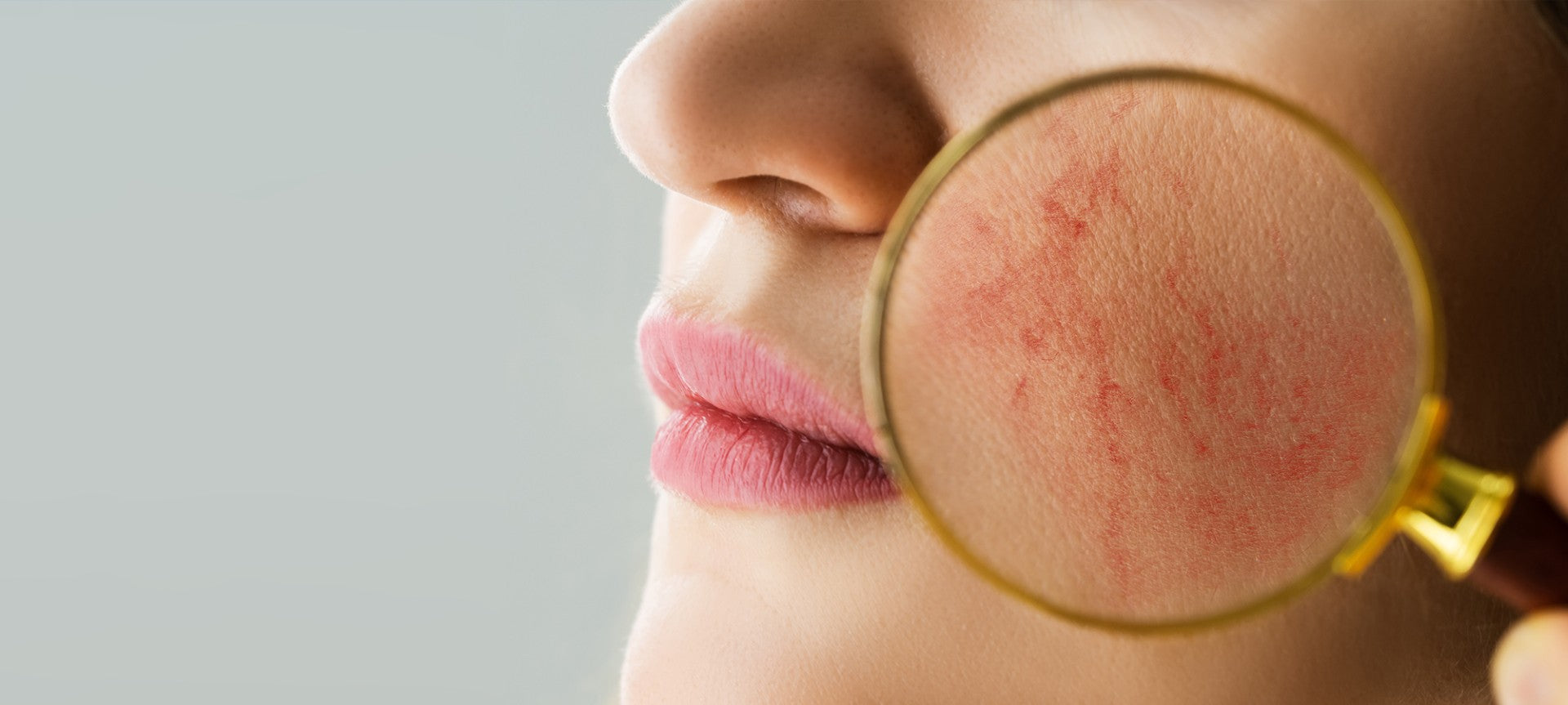
6 Dermatologist Tips to Help Treat Rosacea - and how to know if you have it in the first place
While fresh-looking rosy cheeks may be a much in demand makeup trend, dealing with persistent redness and discomfort from rosacea is less glamorous. And as a growing number of people with rosacea are taking to Instagram and TikTok to demystify the condition, this always means there’s a mountain of misinformation out there as many people just associate rosacea with extreme blushing or just put it down to an allergic reaction. Here is Consultant Dermatologist Dr Ophelia Veraitch’s Guide to dealing with rosacea from diagnosis to ways to manage it.
What exactly is rosacea?
Rosacea is a common inflammatory skin condition which is often misdiagnosed. It is a flushing or redness of the skin which can be accompanied with a rash, spots or red vein marks on the skin. It’s usually seen on the cheeks, chin, nose and forehead but it can also affect the eyes (ocular rosacea) which causes redness and swollen eyelids. The skin can have a dry appearance too. The reason for this is due to the inflammation occurring in the skin which means that cell turnover is greater and this can often result in dry skin.
What causes rosacea?
We don’t fully yet understand the exact cause of rosacea, but we do know that genetics can play a part. If you are genetically predisposed to the condition, there are a number of factors that can bring it on. UV exposure, red wine, spicy food and stress are common triggers for causing a rosacea flare-up.
We also know that there is an association with the miniscule demodex mite which is why Dr Ophelia has included anti-parasite medication Ivermectin (which specifically targets the demodex mite) in her Rosacea Day Serum.
How do I know if I have rosacea?
The tricky thing about rosacea is that it can often be mistaken for acne and vice versa. So the only way to 100% confirm if you have it or not is to visit a dermatologist. Red facial spots can also be a sign of certain types of dermatitis, so having a correct diagnosis to make sure you manage the situation and start treating it as early as possible is important.
A diagnosis is key because treatments that target any other skin conditions can actually make rosacea worse. Having rosacea can have a huge mental impact on people’s quality of life – not just the cosmetic issues but the sensations that come with it. The good news is that it’s all about keeping the triggers under control.
Here’s how to do that.
1.Try to keep a diary of your triggers and avoid anything that makes you flush
For some people it’s hot drinks or red wine, for others it’s stress, extreme changes in outside temperatures, exercise or certain medications. You could start by keeping a diary for 3 months and noting down all of the things that cause a flare-up. If you can identify a trigger then try and avoid it. But if it’s something like exercise for example, you can try and manage the situation by putting an ice-pack on the back of your neck to cool down quicker after exercise. They’re easy to find and effective for quickly reducing the heat response in that area.
2.Strip back your skincare
Less is definitely more when it comes to skincare for rosacea. Choosing fragrance free products is important as rosacea patients often have skin sensitivities or allergies. Another important factor is to use gentle products which aim to restore the skin barrier as this is generally impaired in rosacea sufferers. Dr Ophelia recommends the following regime for rosacea sufferers.
Morning:
Gentle cleansing with something like Skinceuticals Gentle Cleanser or Cerave Gentle Cleanser followed by Dr Ophelia Rosacea Day Serum (with Ivermectin and Vitamin E). Finish with SPF30 or 50 depending on the season. SPF 30 is sufficient during the winter months.
Evening:
Gentle cleansing or use a product with BHA (beta hydroxy acid) if wearing makeup followed by Dr Ophelia Rosacea Night Serum which has medical grade strength azelaic acid and metronidazole both of which help calm flare-ups.
3.Antibiotics may help
Antibiotics may be helpful if rosacea is inflammatory (ie if there are spots). Oral antibiotics such as Lymeycline can be given in a 3 month course, sometimes longer. Topical antibiotics such as metronidazole can be helpful too.
4.Wear SPF every day
We should all be wearing SPF every day of the year (not only during the summer months) to protect our skin from developing skin cancer and photo-ageing, as UV rays come through cloudyskies. But it’s even more important for rosacea sufferers as UV rays can cause flare ups. Choose a sunscreen which protects from UVA and UVB rays. And remember to reapply at lunchtime during the summer months.
5.Invest in medical strength products
Most over the counter formulas won’t have strong enough ingredients to really make a difference whether it’s targeting the demodex mites or getting rid of inflammation. Dr Ophelia’s Rosacea Day Serum and Night Serum are bespoke formulations, tailored to your exact requirements and contain medical grade active ingredients. Importantly they also do not contain any preservatives which cause reactions in some sensitive rosacea prone skin.
6.Work with your Dermatologist on a long-term management plan
It is a good idea to work out a skincare and treatment management plan with your dermatologist so you can be assured of long-term results. As far as in clinic treatments go, vascular laser (Dr Ophelia has the ND:Yag vascular laser in her clinic which is the gold standard to treat redness associated with rosacea), also light based therapies such as IPL (Intense Pulse Light) can help with redness. For severe rosacea re-surfacing lasers such as Fraxel laser can be used to remodel the nose if a patient has developed rhinophyma.
But what’s important to note is that it’s best to treat inflammation first with skincare before using any laser based treatments to ‘tidy’ up the appearance of the skin. Having healthy skin will make it more resilient next time a flare-up occurs and hopefully it won’t last as long.
By Lucia Ferrari
Shop Bestsellers


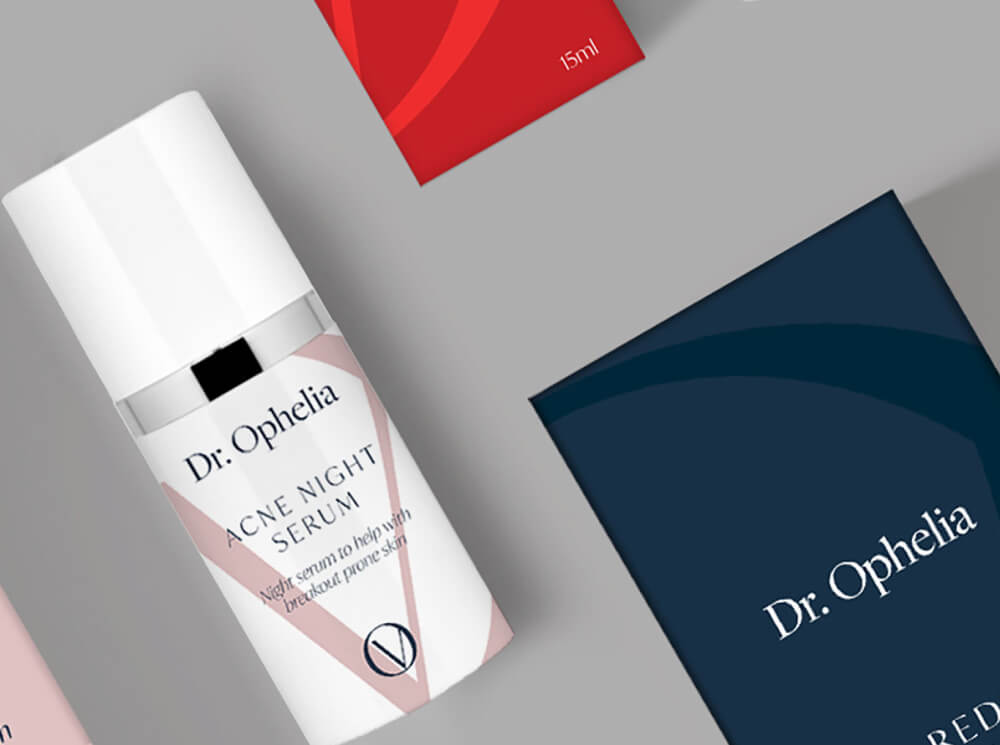

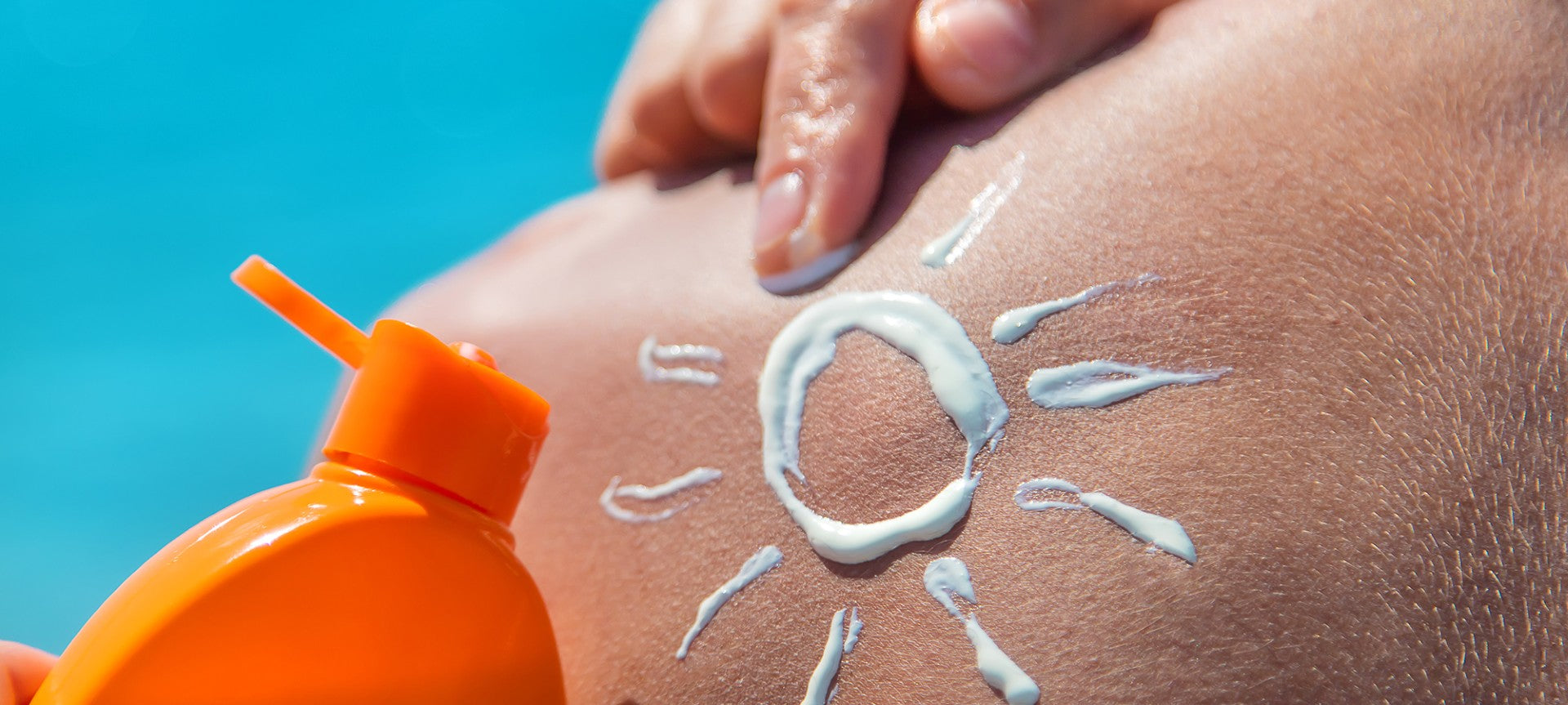

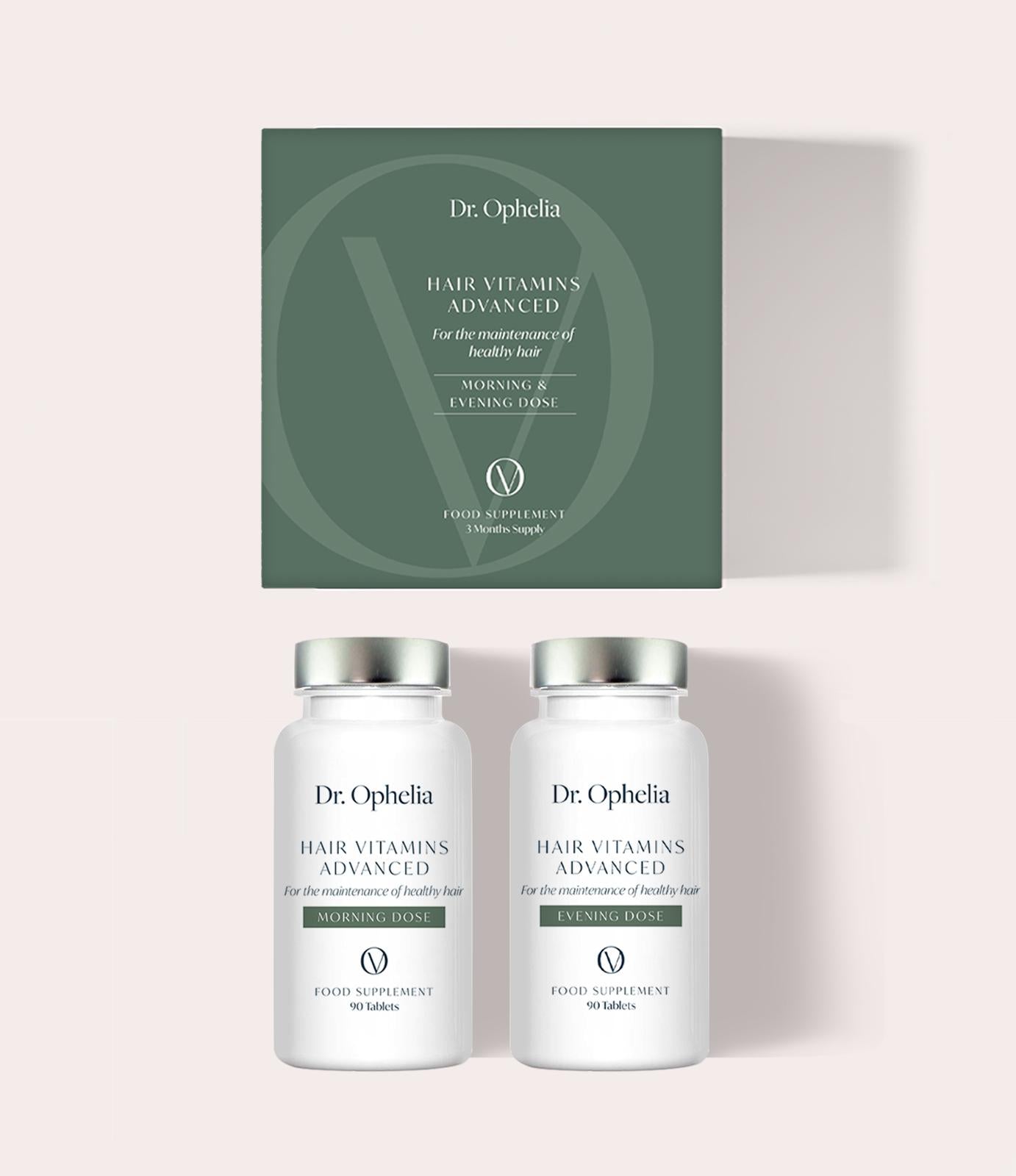
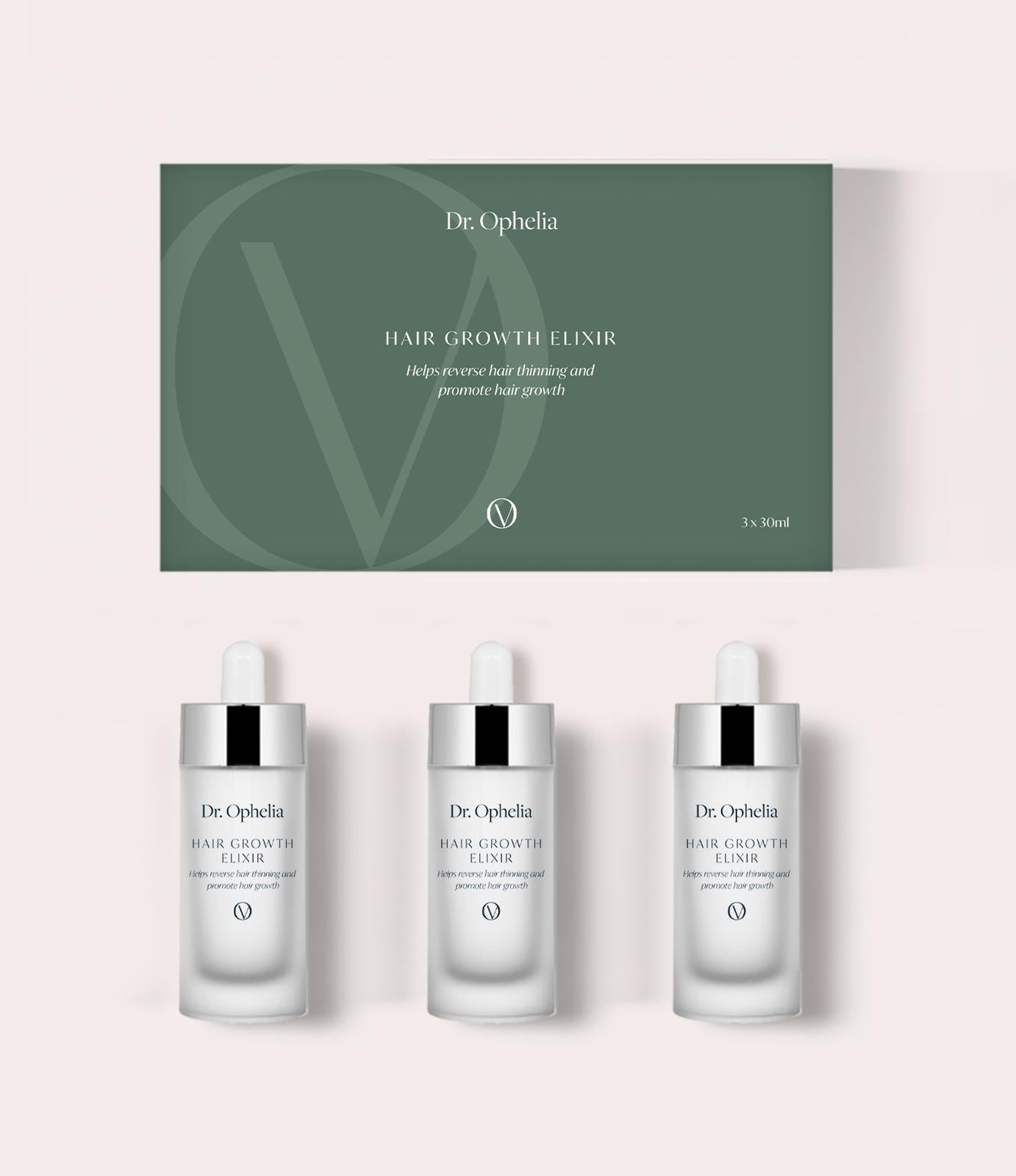
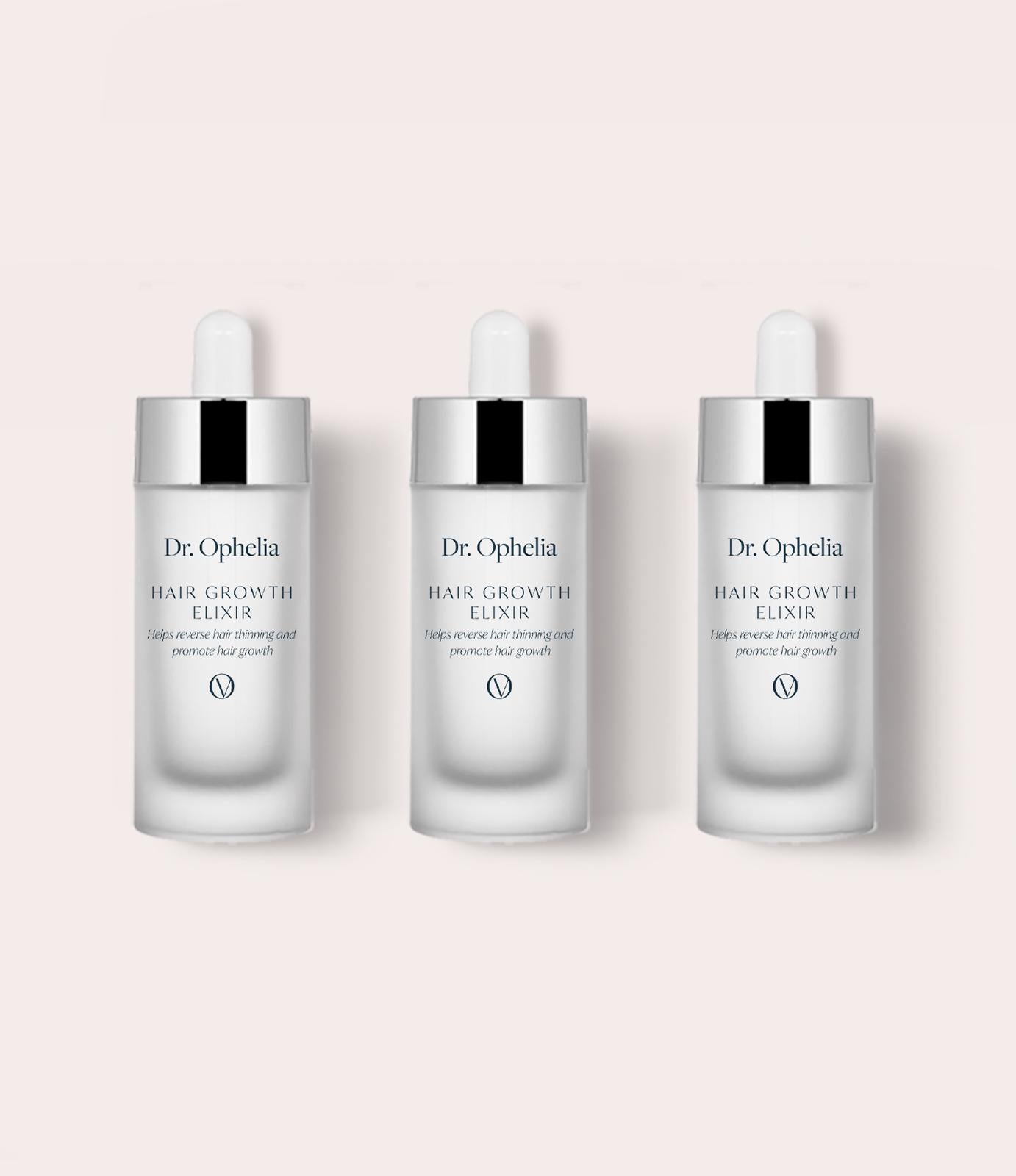
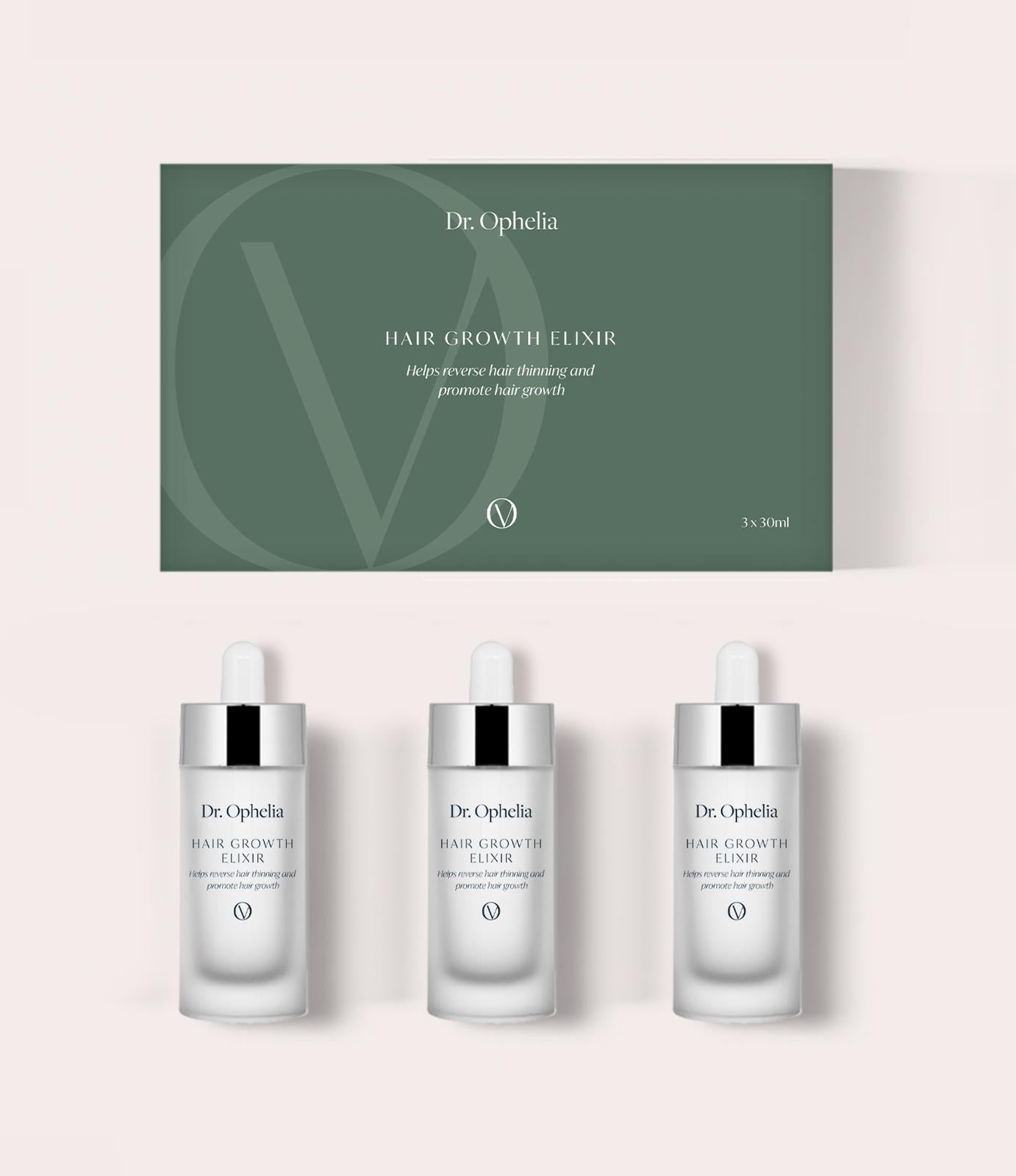
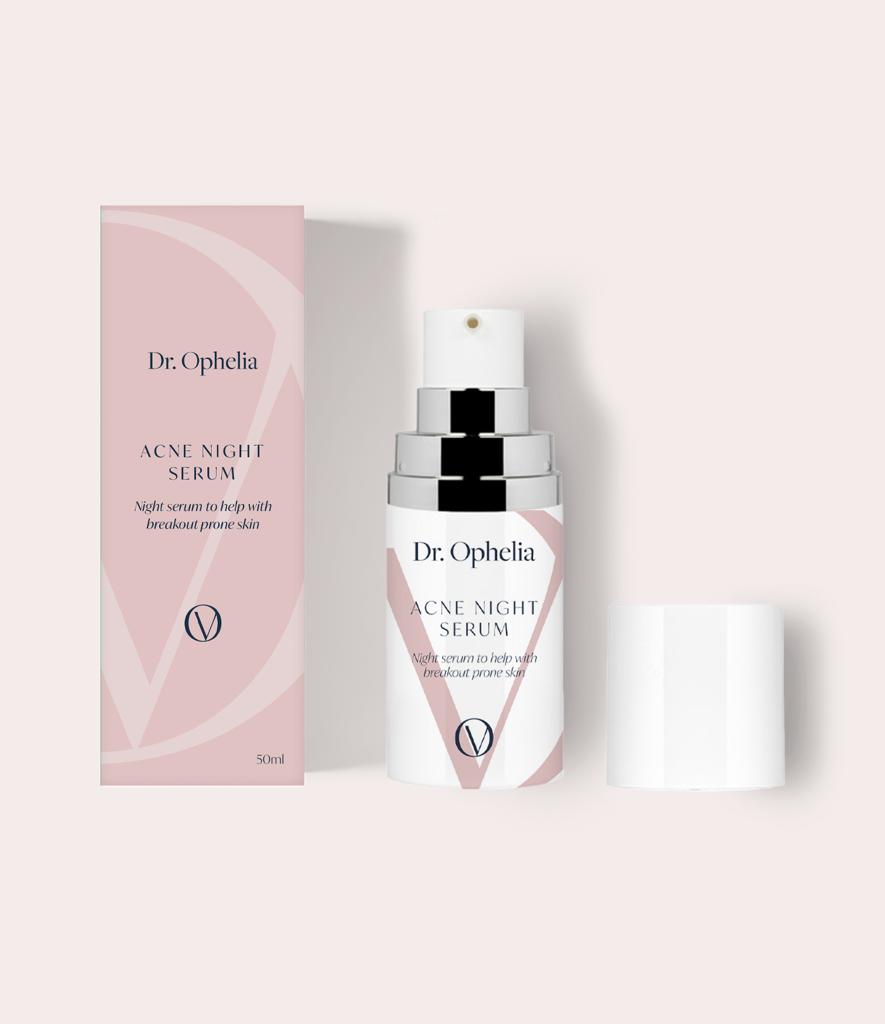
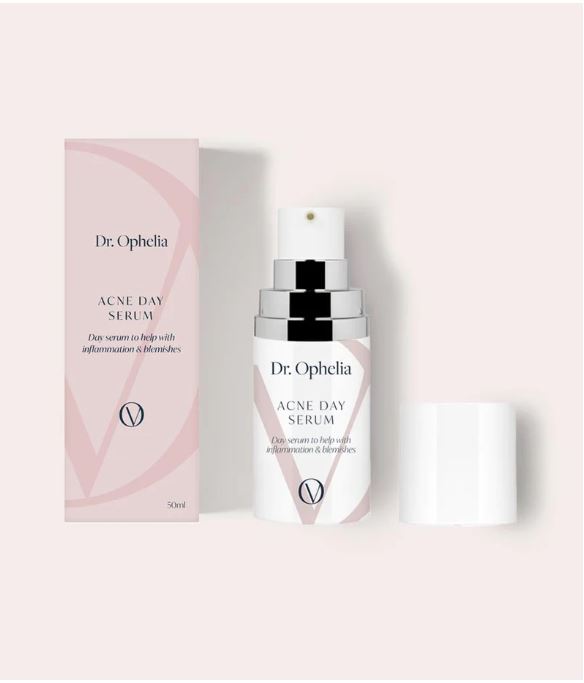
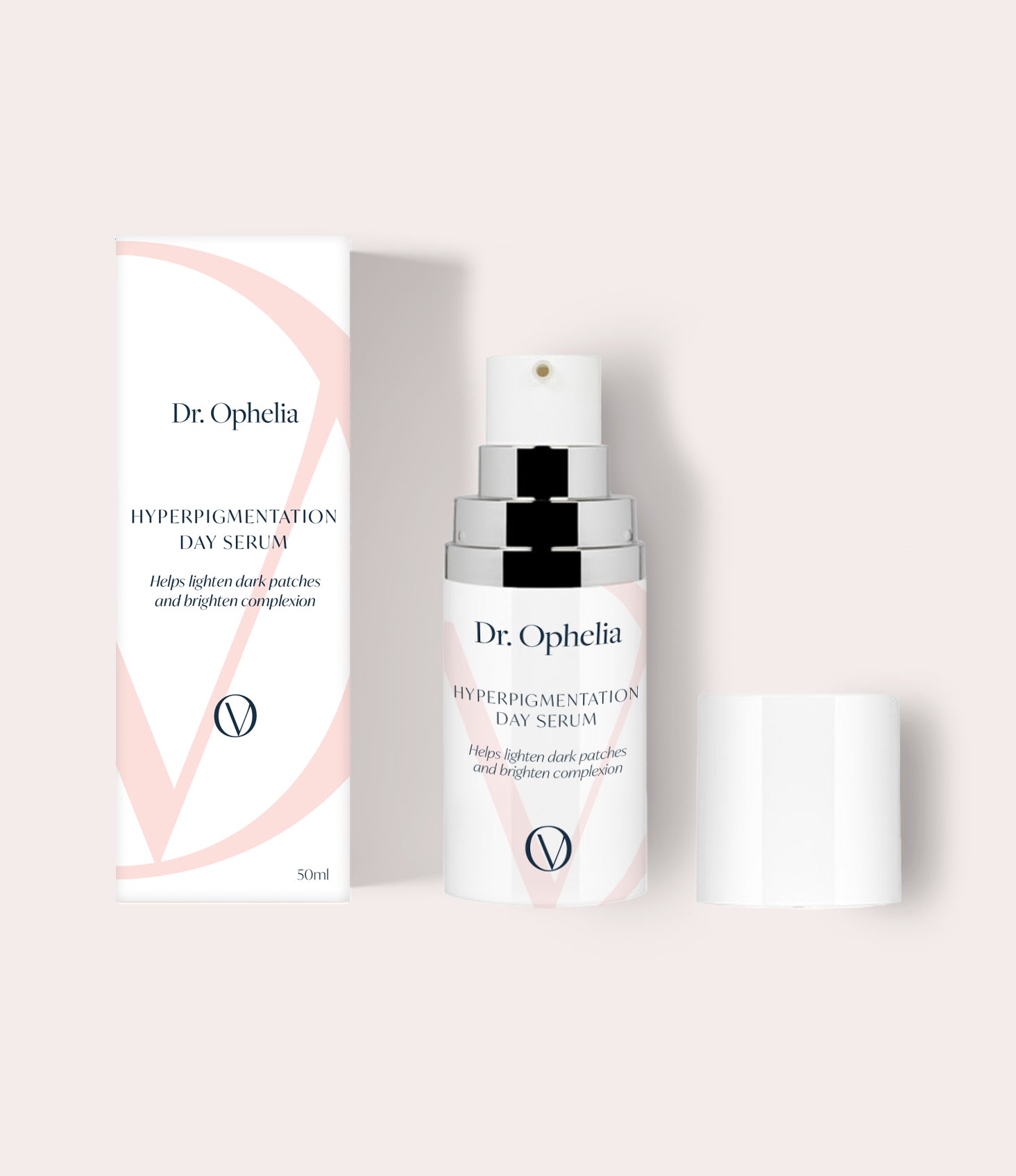
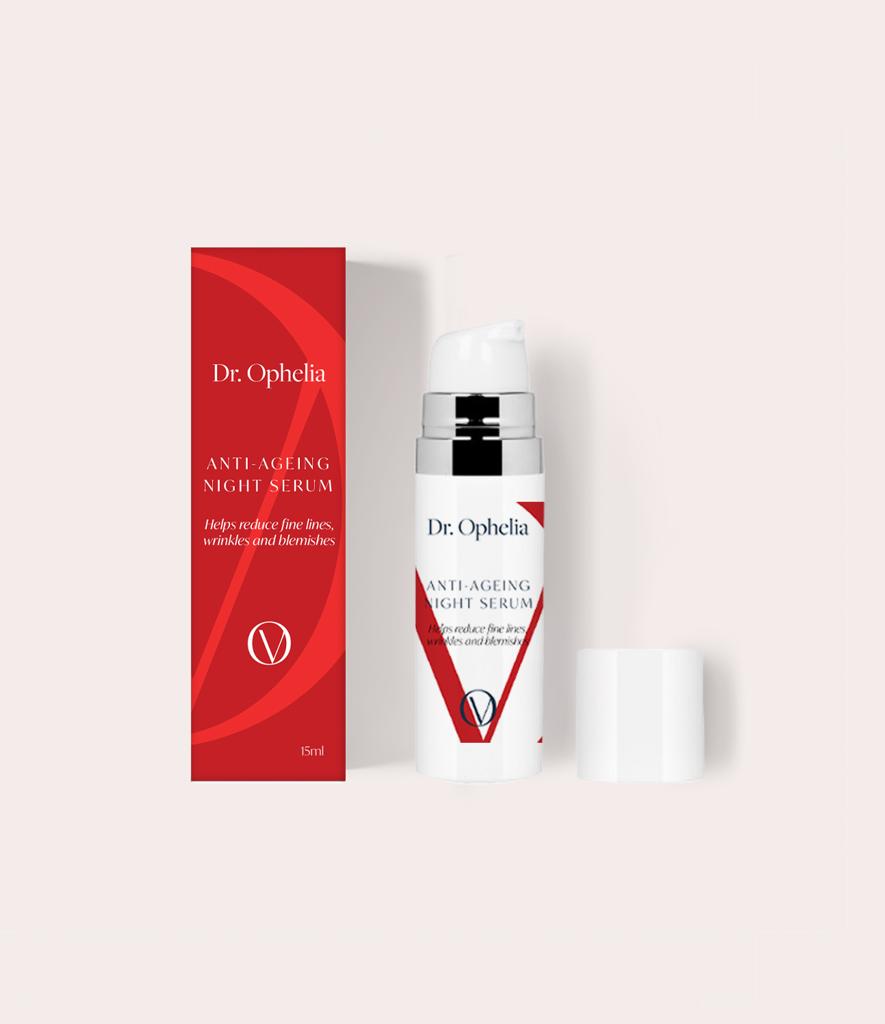
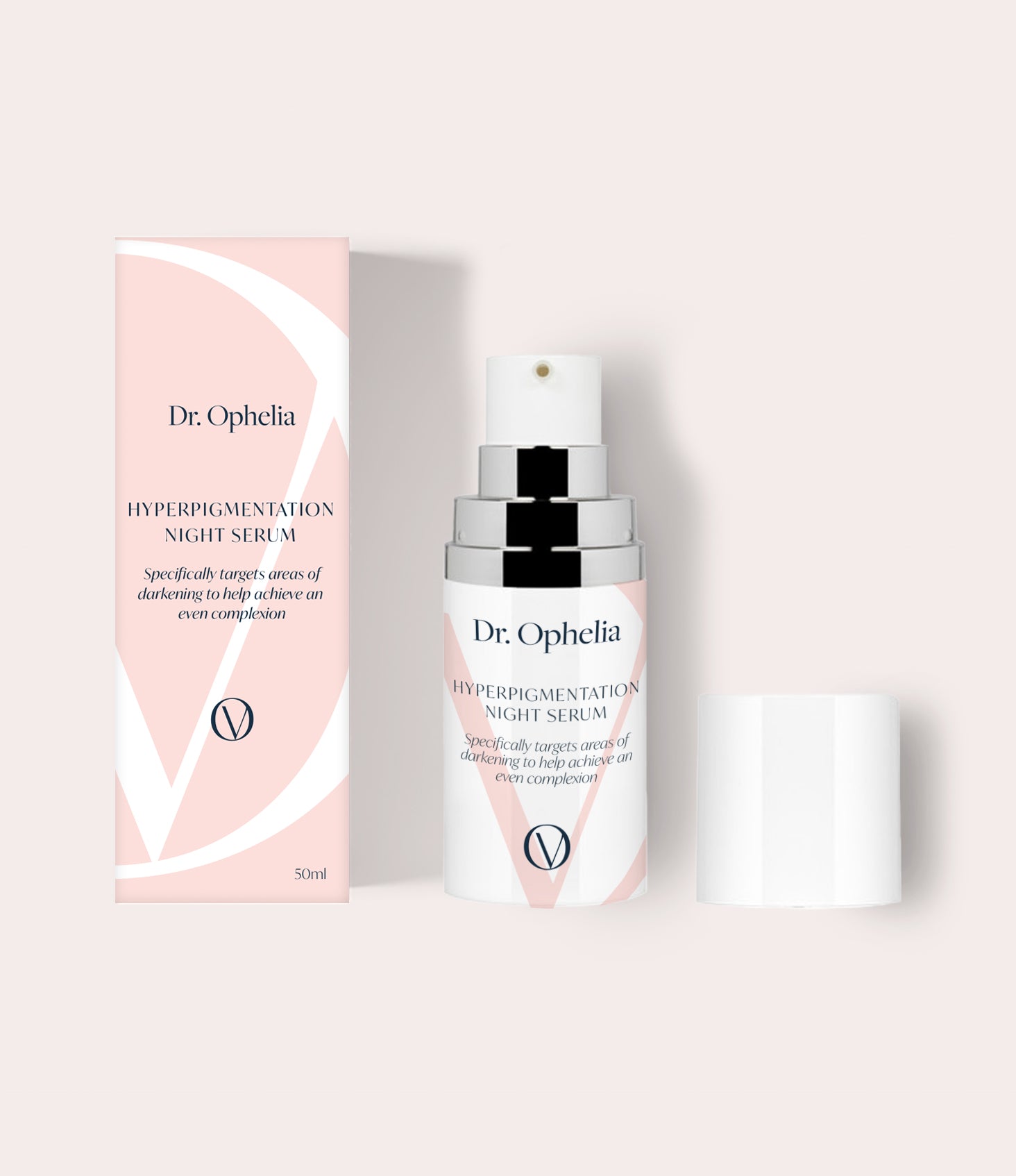
Leave a comment
This site is protected by hCaptcha and the hCaptcha Privacy Policy and Terms of Service apply.